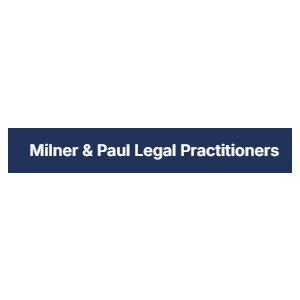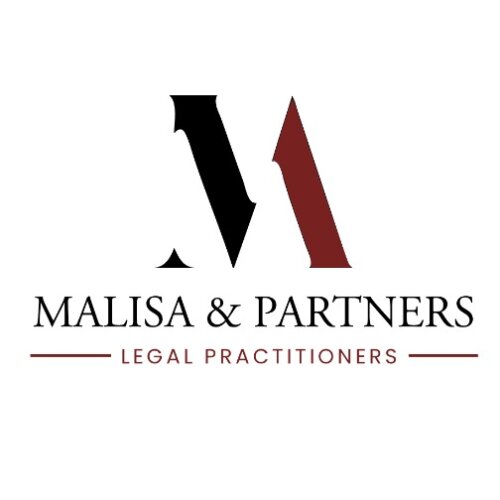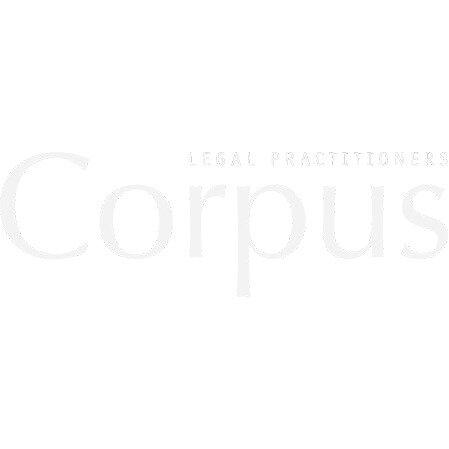Best Conveyancing Lawyers in Zambia
Share your needs with us, get contacted by law firms.
Free. Takes 2 min.
Free Guide to Hiring a Real Estate Lawyer
Or refine your search by selecting a city:
List of the best lawyers in Zambia
About Conveyancing Law in Zambia
Conveyancing in Zambia refers to the legal process involved in buying, selling, or transferring property ownership. This process ensures that the transfer of property rights from one person to another is conducted legally and that the interests of all parties are protected. The conveyancing process includes preparing legal documents, verifying ownership, conducting due diligence, and registering transactions with the relevant authorities. It is a critical step in property transactions designed to avoid disputes and confirm that the property title is clear and marketable.
Why You May Need a Lawyer
The conveyancing process in Zambia can be complex and involves compliance with several statutes and regulations. Common reasons why individuals and businesses seek legal help for conveyancing include:
- Buying or selling land or a house
- Transferring property between family members or as part of an inheritance
- Assisting with subdivisions or merging land parcels
- Conducting due diligence to verify land ownership and ensure there are no encumbrances such as mortgages or pending litigation
- Handling bank financing or mortgages that require registration
- Rectifying errors in title deeds or resolving boundary disputes
- Ensuring compliance with local by-laws and land use restrictions
Having a conveyancing lawyer ensures the transaction goes smoothly, your interests are protected, and all legal requirements are met to avoid future complications.
Local Laws Overview
Conveyancing in Zambia is primarily governed by the Lands Act, the Land and Deeds Registry Act, and the Common Law principles adopted from English law with local modifications. Some key aspects to consider include:
- All land in Zambia is vested in the President on behalf of the people and can only be held under leasehold (not freehold).
- Land transactions must be registered at the Ministry of Lands and Natural Resources to be legally recognized.
- Only Zambian citizens and qualifying companies can own land outright. Foreign individuals or entities must fulfill specific conditions.
- Township land, customary land, and state land each have different procedures for sale, transfer, and registration.
- Paying the correct property transfer tax, stamp duty, and registration fees is mandatory.
- Due diligence such as searches at the Ministry of Lands, checking for caveats or encumbrances, and verifying the authenticity of title deeds is crucial.
Failure to comply with these laws can result in a transaction being declared void or disputed in the future.
Frequently Asked Questions
What is conveyancing?
Conveyancing is the legal process of transferring property ownership from one person to another. It involves the drafting of contracts, checking the validity of titles, conducting due diligence, and registering the transaction with government authorities.
Why do I need a lawyer for conveyancing?
A lawyer protects your interests by ensuring all legal steps are followed, performing due diligence, preparing all legal documents accurately, and resolving any disputes or issues that may arise.
What documents are required for conveyancing?
Generally, you will need the land title deed, the contract of sale, identification documents for parties involved, tax clearance certificates, and proof of payment for relevant taxes and fees.
How long does the conveyancing process take?
On average, the process can take from a few weeks to several months, depending on the complexity of the transaction and how quickly all documents and approvals are provided.
What are the fees and taxes involved?
The main costs include property transfer tax, stamp duty, registration fees, and legal fees. As of 2024, property transfer tax stands at 5 percent of the property value, but this rate may change.
Can foreigners own property in Zambia?
There are restrictions on foreign ownership. Generally, only Zambian citizens and qualifying local companies can acquire or hold land, though certain provisions may allow controlled transactions under specific conditions.
What checks should I do before buying property?
Due diligence should include confirming the property title at the Ministry of Lands, checking for encumbrances or caveats, verifying that the seller has authority to sell, and confirming there are no outstanding taxes or rates.
What happens if a dispute arises?
If any disputes arise, such as over boundaries or ownership, these can often be resolved by negotiation, but may also require mediation or court proceedings. Having a lawyer involved from the start can help prevent or quickly resolve disputes.
What is a caveat and how does it affect conveyancing?
A caveat is a legal notice that prevents the registration of any transaction on a property without notifying the caveator. It is commonly used to preserve someone’s interest in land during disputes.
How is land transfer finalized?
The transfer is finalized after the new owner's title is registered at the Ministry of Lands and the relevant taxes and fees have been paid. Only then does the buyer become the legal owner.
Additional Resources
If you wish to explore more information or need guidance, consider the following resources and organizations:
- Ministry of Lands and Natural Resources - Handles land registration and title deeds.
- Land and Deeds Registry - Manages records of ownership, encumbrances, and transactions.
- Zambia Institute of Estate Agents - Can provide recommendations for qualified estate agents.
- Law Association of Zambia - Offers a directory of licensed legal practitioners specializing in conveyancing.
- Local District and Municipal Councils - Provide information on land rates, zoning laws, and planning permissions.
Next Steps
If you need further assistance with conveyancing in Zambia, consider taking the following steps:
- Identify a licensed conveyancing lawyer or law firm with experience in property transactions.
- Gather all necessary documents related to the property and any prior correspondence.
- Arrange an initial consultation to discuss your objectives, ask questions, and receive an overview of the conveyancing process specific to your situation.
- Ensure you understand all associated costs, expected timelines, and your legal obligations before proceeding.
- If you are unsure where to find a lawyer, contact the Law Association of Zambia for recommendations or visit the Ministry of Lands for further guidance.
Professional guidance can protect your rights and help you navigate the conveyancing process smoothly, reducing risks and ensuring your property transaction is secure and legally binding.
Lawzana helps you find the best lawyers and law firms in Zambia through a curated and pre-screened list of qualified legal professionals. Our platform offers rankings and detailed profiles of attorneys and law firms, allowing you to compare based on practice areas, including Conveyancing, experience, and client feedback.
Each profile includes a description of the firm's areas of practice, client reviews, team members and partners, year of establishment, spoken languages, office locations, contact information, social media presence, and any published articles or resources. Most firms on our platform speak English and are experienced in both local and international legal matters.
Get a quote from top-rated law firms in Zambia — quickly, securely, and without unnecessary hassle.
Disclaimer:
The information provided on this page is for general informational purposes only and does not constitute legal advice. While we strive to ensure the accuracy and relevance of the content, legal information may change over time, and interpretations of the law can vary. You should always consult with a qualified legal professional for advice specific to your situation.
We disclaim all liability for actions taken or not taken based on the content of this page. If you believe any information is incorrect or outdated, please contact us, and we will review and update it where appropriate.
Browse conveyancing law firms by city in Zambia
Refine your search by selecting a city.
















